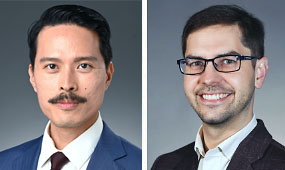Psychedelic Renaissance: Clinical Health Justice, Patient Safety, and Equity Need to Be Put First
Abstract
With the impending FDA review of the phase 3 data for MDMA-assisted psychotherapy for PTSD, experts reflect on ethical considerations, appropriate use, and access.
The groundswell of interest in psychedelics in psychiatry, medicine broadly, and in popular culture continues without a peak in sight.
Though the term “psychedelic” was coined in the 20th century, these compounds have an extensive history of use by Indigenous peoples, often related to traditional or ceremonial use.
There are many overlapping terms and substances with different mechanisms often referred to as producing a psychedelic effect, though “classic psychedelic” refers primarily to serotonin 2A receptor agonists such as psilocybin, DMT, and LSD. Research is progressing rapidly, with phase 3 trials and FDA approval on the horizon in the next few years. An incredibly diverse array of psychiatric disorders are the targets of investigation, with MDMA-assisted psychotherapy for PTSD and psilocybin for treatment-resistant depression at the leading edge for likely indications for approval. There is a clear necessity, a fortiori, to critically explore the diverse ethical and practical issues surrounding psychedelic research and the impact of their progression and potential clinical implementation.
With the impending FDA review of the phase 3 data for MDMA-assisted psychotherapy for PTSD, we must urgently and proactively reflect on ethical considerations, appropriate use, and access. William R. Smith, M.D., Ph.D., and Paul Appelbaum, M.D., in a review posted September 15, 2022, in Neuropharmacology identified key challenges about novel ethical and policy issues related to psychedelics, including informed consent, underground use, commercialization, and questions around regulation and legalization. Major hurdles are ahead, such as the legal reclassification and rescheduling of psychedelic compounds, appropriate patient screening, minimizing risks in real-world practice, and ensuring that the barriers to access do not prevent the most at-risk patients from getting care.
We must temper the zeal for the potential of these compounds with the reality of clinical evidence. Currently, there already existed questionable practices in pseudo-therapeutic spaces to lure the well-intentioned but desperate and vulnerable patients; with tremendous and seductive promises of psychedelics, it is highly likely that underground utilization of psychedelic compounds will grow. Many startups and biomedical clinics, often purporting ketamine treatment as a model, are financially profiting from this enthusiasm—bringing a marketing blitz that is reminiscent of the false expectations that portended the opiate crisis. As physicians and stewards of sound science, we must not let our desperation for novel therapeutics cloud our better judgment when the clinical evidence base is still incomplete.
Relating to the possibility or eventuality that evidence-based psychedelic treatments become FDA-approved, we must recognize the inherent training gap, which will limit rapid practical implementations for needed patients. Furthermore, there will also be a need for an extended interdisciplinary team model for treatment in order to properly scale the treatments. Without the involvement of the interdisciplinary team, an individual psychiatrist would be challenged to be able to provide care at a sufficient volume to meet the anticipated treatment needs. In addition, appropriate credentialing and the minimum required skills for consistency and effective psychedelic-assisted psychotherapy have not been well-established. There have been a few efforts at developing guidelines, credentials, and training requirements. However, while a treatment is yet to be formally approved, numerous interim programs that purport to teach psychedelic-assisted psychotherapy have appeared. Psychiatrists and other therapists are paying huge sums to obtain training, such as taking certificate courses and going on group retreats; there have been online reports of implicit expectations for training participants to use psychedelic substances to better improve insights into the patient experience.
In the clinical health justice and equity lens, minoritized populations, such as ethnoracial minorities and Indigenous cultures, have historically not been included in research on novel treatments and also have been denied access to such treatments. For example, how can psychiatrists better be prepared to avoid cultural appropriations of Indigenous practices, manage burdensome insurance authorization, and expand access to rural and underserved communities? In addition, how do we balance the sensitive neurodevelopment of the pediatric populations in the ethical research of psychedelics and their use in treatment?
Undoubtedly, there will be no simple solution. Similar to clozapine and esketamine, a Risk Evaluation and Mitigation Strategy (REMS) program may be needed to provide oversight and improve standardization of risk monitoring. In access and equity, psychiatrists should continue to organize, advocate, and discuss with their legislators at the state and federal levels. Oregon is possibly an example of a test case of regulated use of psychedelics in service centers with licensed facilitators.
We must be mindful of the risks of unsubstantiated practices without an evidence base that can sometimes cross into the harmful or unethical. As we navigate this era of great promise for psychedelic therapeutics, our duty to our patients requires a thoughtful, equity-driven, and evidence-based approach. ■




